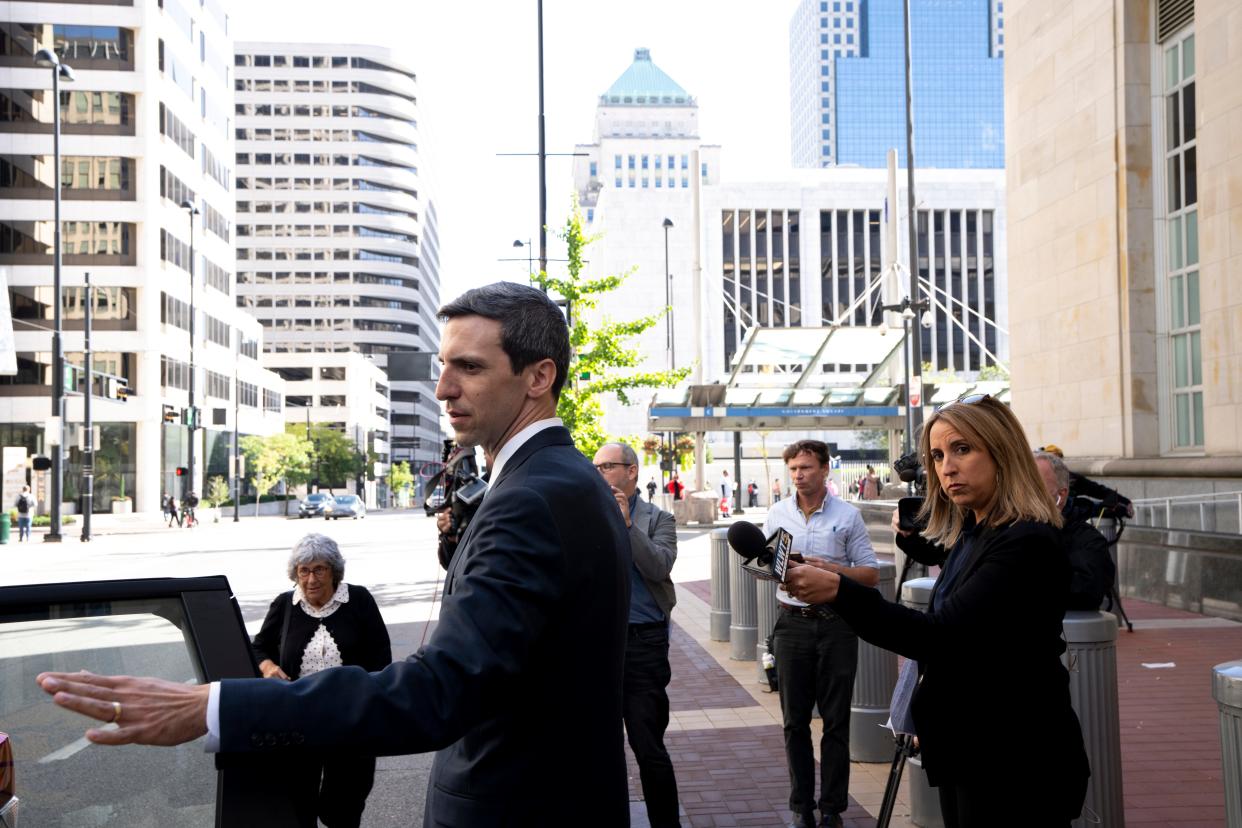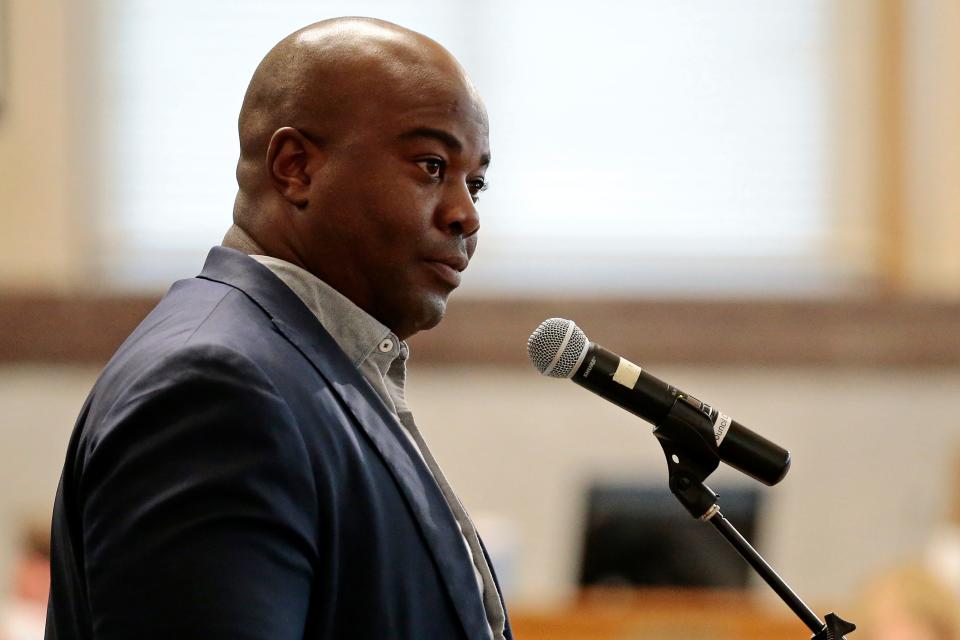'A tale of corruption': Feds urge court to uphold PG Sittenfeld's convictions

At the heart of P.G. Sittenfeld's appeal of his convictions for bribery and attempted extortion is the argument that his actions were typical of politics − that he was raising money for his then-impending run for mayor of Cincinnati.
Sittenfeld, who is now two months into a 16-month prison sentence, has asked a federal appeals court to overturn his convictions. On Feb. 9, prosecutors responded in an 82-page brief, detailing how they believe Sittenfeld's goals for higher office led him to accept $20,000 in donations to his political action committee in exchange for his official support of a development project.
Prosecutors wrote that the judge who presided over Sittenfeld's 2022 trial has already found, in upholding the convictions, that the evidence "told a consistent, credible story that a jury could reasonably find constituted a tale of corruption."
An effort to derail Christopher Smitherman's campaign
The brief, filed in the 6th U.S. Circuit Court of Appeals, begins in 2017, when Sittenfeld won re-election to Cincinnati City Council and set his sights on the 2021 mayoral election.
Sittenfeld set up the PAC and then hatched a plan to solicit donations from people who had business before the city, prosecutors say in the brief.
Sittenfeld’s strategy involved telling potential donors the consequences of contributing to his opponent in the mayoral race at the time, Vice Mayor Christopher Smitherman. Sittenfeld didn’t want donors to support them both.
Around the same time, one of the donors, former Cincinnati Bengal and local developer Chinedum Ndukwe, began working as an informant for the FBI. Ndukwe had evaded campaign finance limits by donating to local politicians in the names of friends and family, prosecutors say, in an effort to advance real estate deals. To avoid prosecution, he cooperated with the FBI.
It was Ndukwe who introduced Sittenfeld to two undercover agents posing as out-of-town investors and by October 2018 was recording calls with Sittenfeld at the FBI’s direction.

Helping Chinedum Ndukwe, former Cincinnati Bengal
Ndukwe at the time was pursuing an agreement with the city to develop a neglected Downtown property at 435 Elm St. But the project had stalled. To push the agreement through the city bureaucracy, Ndukwe needed the support of a majority of city council, which Sittenfeld said he could deliver.
In one call, prosecutors said Sittenfeld threatened to withhold support for the project unless Ndukwe contributed. Days later, prosecutors said, after the undercover agents offered Sittenfeld $20,000, "he promised to ‘deliver the votes.’”
Sittenfeld gave his support, prosecutors said, even though city officials believed that Ndukwe hadn't shown the capacity or finances for the project and that it “was not in the public interest.”
Sittenfeld pursued Ndukwe’s interests in conversations with Cranley, according to prosecutors, and tried to “dissuade” the director of the city’s economic development department from opening the project up to other developers.
Prosecutors also said that Sittenfeld pressured the president and CEO of The Port, the agency in charge of redeveloping 435 Elm St., to enter into an agreement with Ndukwe.
'Sudden eagerness' to support development
Laura Brunner testified during the trial that she found Sittenfeld’s communications about the project “aggressive” and “completely out of context with the rest of my communication with him.”
Brunner said Sittenfeld wanted her to enter into the agreement “regardless of whether I thought it was a good idea or not.”
"The jury had the opportunity to assess Sittenfeld's sudden eagerness to support 435 Elm in context," prosecutors say in the brief. "He showed no interest in supporting it or advancing it until he was presented with the corrupt offer."
Prosecutors added that the jury found that he had entered into an explicit quid pro quo, agreeing "to accept payment knowing that the payment was made in return for official acts − votes for 435 Elm."
The court has not yet set a date for oral arguments.
This article originally appeared on Cincinnati Enquirer: PG Sittenfeld: Feds urge Sixth Circuit to uphold convictions

